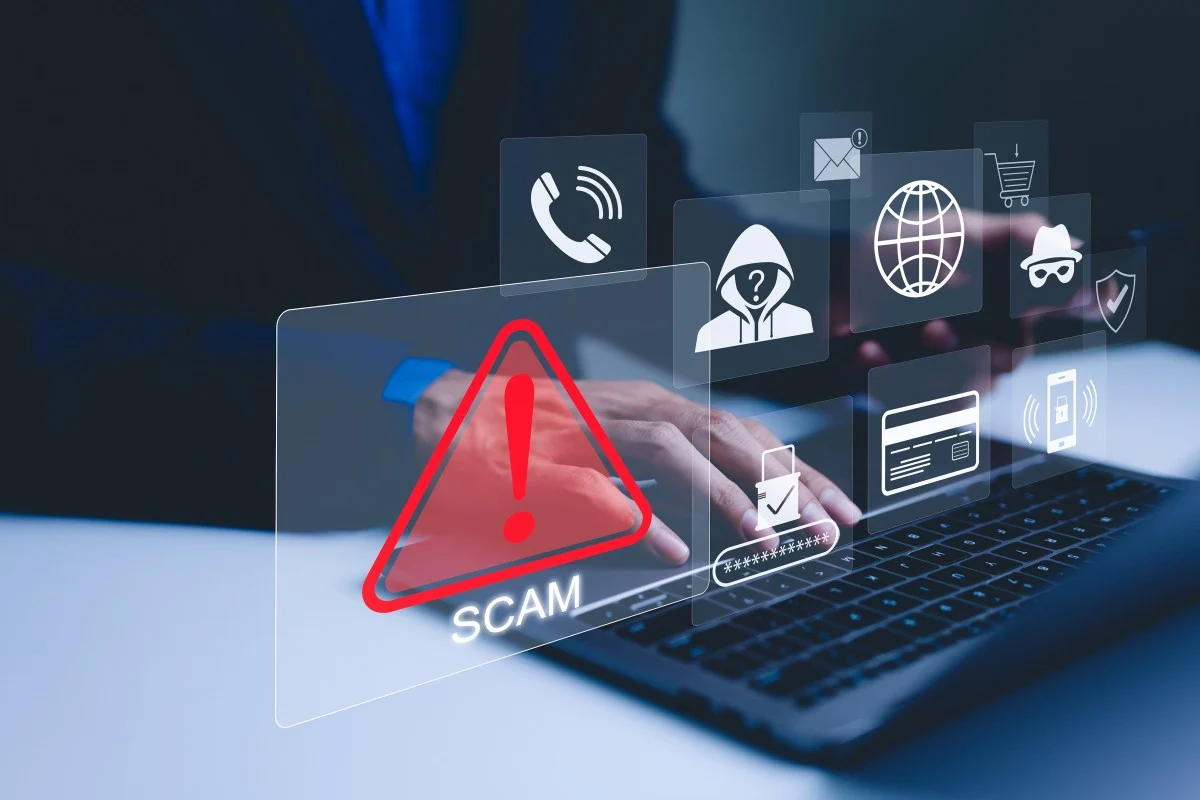Fraud / Online Telephone Scam
- FAQs
1. Hong Kong Police Force
- Statutory Basis: Police Force Ordinance (Cap. 232) — general law enforcement powers to investigate criminal offences, including fraud under the Theft Ordinance (Cap. 210), Crimes Ordinance (Cap. 200), and other relevant statutes.
- Specialised Units:
- Commercial Crime Bureau (CCB) — handles serious or complex commercial fraud, corporate crime, securities fraud, and large-scale deception cases.
- Anti-Deception Coordination Centre (ADCC) — focuses on telephone, internet, and social media scams; provides real-time advisory to potential victims.
- Scope:
- All general fraud and deception cases not specifically involving corruption.
- Investigation includes evidence gathering, interviewing witnesses, arresting suspects, and liaising with overseas law enforcement for cross-border fraud.
2. Independent Commission Against Corruption (ICAC)
- Statutory Basis:
- Independent Commission Against Corruption Ordinance (Cap. 204) — establishes ICAC and grants investigative powers.
- Prevention of Bribery Ordinance (Cap. 201) — ICAC investigates bribery and corruption offences in both public and private sectors.
- Elections (Corrupt and Illegal Conduct) Ordinance (Cap. 554) — ICAC investigates electoral fraud and corruption.
- Scope:
- Primarily corruption-related fraud — e.g., fraud involving bribery of public officials, abuse of office, secret commissions.
- May investigate fraud in the private sector if linked to corruption or offences under the above ordinances.
- Powers:
- Can arrest without warrant if there is reasonable suspicion of an offence under its remit.
- Can obtain search warrants from court or, in urgent cases, from the Commissioner.
- Can detain and interview suspects, with rights protected under the Independent Commission Against Corruption (Treatment of Detained Persons) Order (Cap. 204A).
You can use the following lawful verification steps before responding to a call or message:
Hong Kong does not have a single, dedicated “Internet Fraud Ordinance” or “Telecommunications Fraud Ordinance.” Instead, online and telecom scams are prosecuted under existing criminal statutes that apply regardless of the medium used.
Key applicable laws include:
Conspiracy to defraud is a common law offence recognised in Hong Kong, prosecuted under section 159C of the Crimes Ordinance (Cap. 200).
Crimes Ordinance (Cap. 200) s.159C(1)
If a person agrees with another person or persons that a course of conduct shall be pursued which will necessarily amount to or involve the commission of any offence, he is guilty of conspiracy to commit that offence.
For conspiracy to defraud, the offence does not require proof of actual loss — it is sufficient that the agreement would expose another’s economic interests to risk.
Maximum Penalty:
- As a common law offence, conspiracy to defraud carries no statutory maximum; sentencing is at the discretion of the court.
- In practice, courts take guidance from fraud sentencing tariffs. Large-scale or sophisticated frauds can attract sentences exceeding 10 years’ imprisonment.
Sentencing Principles (from case law):
- Scale of fraud / amount involved — higher amounts lead to higher sentences.
- Role of defendant — masterminds receive heavier penalties.
- Duration and sophistication — prolonged, well-planned fraud increases culpability.
- Aggravating factors — abuse of trust, offences committed while on bail, multiple victims.
- Mitigating factors — guilty plea, cooperation, restitution.
Recovery depends on the nature of the scam, the location of funds, and whether the fraudster or recipient can be identified and is within reach of Hong Kong’s legal jurisdiction.
Key legal avenues:
1. Criminal Proceedings
- Victims should report the scam immediately to the Hong Kong Police — Anti-Deception Coordination Centre (ADCC).
- If police freeze bank accounts containing the defrauded funds, the court may order restitution after conviction, but criminal prosecution alone does not guarantee compensation.
2. Civil Litigation
- Victims may sue the fraudster (or the person who received the funds) for unjust enrichment, conversion, or fraudulent misrepresentation.
- Cases such as COMTEL Solutions PTE Ltd v Yi Li Trade (HK) Co Ltd [2019] HKCFI 2407 show that courts can order vesting orders and declaratory relief to return funds held in Hong Kong accounts.
- If the recipient is an innocent party but received stolen funds, recovery may still be possible unless they can prove a bona fide purchaser for value defence (see DBS Bank (Hong Kong) Ltd v Pan [2020] HKCFI 268).
3. Tracing and Injunctions
- Victims can apply for proprietary injunctions and Mareva injunctions to freeze assets before they are dissipated.
- Disclosure orders under the Evidence Ordinance (Cap. 8) can compel banks to provide account records to trace funds (Taihei Dengyo Kaisha Ltd v Bok Joeng HK Co Ltd [2022] HKCFI 1322).
4. Alternative Dispute Resolution (ADR)
If the scam involves financial products sold by licensed institutions, victims may seek mediation or arbitration via the HKMA or SFC.
ADR is faster and confidential but requires the other party’s agreement.
Fraud in Hong Kong is primarily prosecuted under section 16A of the Theft Ordinance (Cap. 210). The prosecution must prove:
- Deceit — a false representation, concealment of facts, or dishonest act.
- Intent to defraud — the accused acted deliberately to cause another to act or omit to act.
- Resulting benefit or prejudice — the deceit resulted in benefit to someone other than the victim, or prejudice to someone other than the victim.
- Causation — the deceit induced the act or omission.
Types of Evidence Commonly Used in Fraud Cases:
1. Immediate Protective Actions
- Do not transfer money or disclose personal data (e.g., HKID number, bank account, passwords) to unknown or suspicious parties.
- Terminate communication — hang up the call or stop responding to online messages.
- Verify independently — if the caller claims to be from a bank, government department, or law enforcement, contact the organisation directly using official contact details from their website.
- Secure accounts — change passwords and enable two-factor authentication for email, banking, and social media accounts.
2. Preserve Evidence
- Keep records of all communications (screenshots, call logs, emails, chat history).
- Note down the date, time, caller ID, and content of the conversation.
- Retain any suspicious documents or links for investigation.
3. Report to Authorities
- Hong Kong Police — Anti-Deception Coordination Centre (ADCC)
- Hotline: 18222 (24 hours) — for immediate advice and scam verification.
- Website: https://www.police.gov.hk/ppp_en/04_crime_matters/adcc/
- In emergencies, call 999.
- Report via e-Report Centre — https://www.police.gov.hk/ppp_en/09_e_report/
- If the scam involves a bank or financial product, notify your bank immediately and consider informing the Securities and Futures Commission (SFC) or Hong Kong Monetary Authority (HKMA).
- If personal data has been compromised, lodge a complaint with the Office of the Privacy Commissioner for Personal Data (PCPD).
4. Seek Assistance
- Contact the Consumer Council (Tel: 2929 2222) if the scam involves goods or services.
- If financial loss has occurred, consider seeking legal advice promptly to explore civil recovery options.
- For large-scale or organised fraud, the police may investigate under fraud (Cap. 210 s.16A) or conspiracy to defraud (Cap. 200 s.159C).
Hong Kong law does not have a separate offence specifically labelled “online scam” or “telephone scam.” These conduct types are prosecuted under existing fraud and deception offences, primarily:
1. Fraud — section 16A of the Theft Ordinance (Cap. 210)
If any person by deceit, and with intent to defraud, induces another person to commit an act or make an omission which results either—
(a) in benefit to any person other than the person induced; or
(b) in prejudice to any person other than the person induced,
the person committing the offence shall be guilty of fraud and shall be liable on conviction upon indictment to imprisonment for 14 years.
2. Obtaining property by deception — section 17 of the Theft Ordinance (Cap. 210)
Covers obtaining property belonging to another by deception, with intent to permanently deprive.
3. Conspiracy to defraud — common law offence, governed by section 159C of the Crimes Ordinance (Cap. 200)
Applies where two or more persons agree to use dishonest means to cause economic loss or risk.
4. Use of telecommunications for dishonest purposes
While Hong Kong does not have a standalone “cyber fraud” statute, the above offences apply regardless of whether deceit is carried out in person, online, or via telephone.
Conspiracy to defraud is a common law offence recognised in Hong Kong and prosecuted under section 159C of the Crimes Ordinance (Cap. 200), which governs conspiracy generally.
At common law, conspiracy to defraud requires:
- Agreement between two or more persons.
- Dishonest means agreed to be used.
- Intention to cause economic loss or put another’s economic interests at risk.
Under Hong Kong law, fraud is generally prosecuted under section 16A of the Theft Ordinance (Cap. 210) and section 159C of the Crimes Ordinance (Cap. 200), depending on the nature of the offence.
Section 16A(1) of the Theft Ordinance (Cap. 210):
If any person by deceit, and with intent to defraud, induces another person to commit an act or make an omission which results either—
(a) in benefit to any person other than the person induced; or
(b) in prejudice to any person other than the person induced,
the person committing the offence shall be guilty of fraud and shall be liable on conviction upon indictment to imprisonment for 14 years.
The actus reus of fraud involves:
- A false representation or deceit (can be verbal, written, or by conduct).
- Inducing the victim to act or omit to act.
- Resulting in benefit to another or prejudice to another.
The mens rea requires:
- Intent to defraud — meaning the defendant acted dishonestly, knowing the representation was false or misleading, intending to cause the victim to act to their detriment or to another’s benefit.







